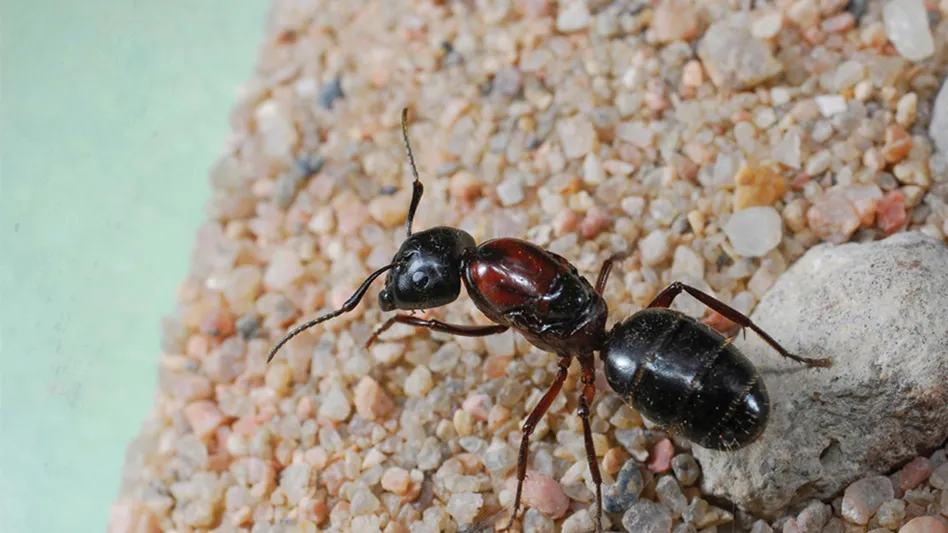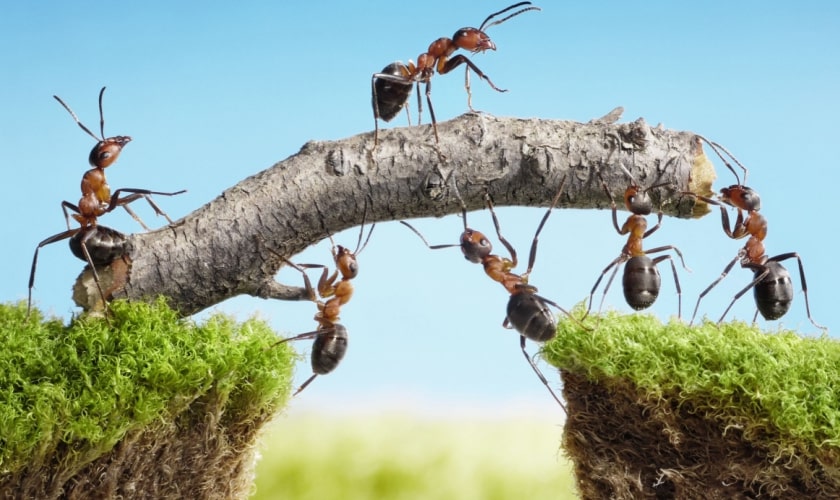Environmental Impact of Pest Control: Harmonizing Performance With Sustainability
The environmental effect of parasite control is a critical issue that calls for a delicate balance between achieving efficiency in ensuring and handling parasites sustainability of our ecosystems. As we aim to shield our plants, homes, and wellness from the threats postured by parasites, the approaches we use can unintentionally damage the setting. From using harmful chemicals that seep right into our dirt and water to the unplanned consequences on non-target varieties, the repercussions of traditional insect control techniques are significant. However, there are arising approaches that provide hope for a more sustainable technique to pest administration. These remedies not just purpose to resolve the immediate bug troubles but likewise take into consideration the lasting health and wellness of our planet.
Unsafe Chemicals in Insect Control
The utilization of dangerous chemicals in bug control positions significant ecological and wellness risks that necessitate mindful consideration and reduction techniques. Insecticides, herbicides, and pesticides are commonly made use of to remove insects, yet their extensive application can lead to unintended repercussions. These chemicals can infect soil, water sources, and the air, influencing not just the targeted insects but likewise advantageous pests, wildlife, and human beings.

To attend to these threats, incorporated parasite monitoring (IPM) techniques are being promoted as a much more lasting option. IPM includes a mix of approaches such as organic control, environment manipulation, and the targeted use pesticides as a last option (ant control springs nc). By taking on a holistic technique to pest control, we can decrease the environmental and health and wellness impacts linked with damaging chemicals while efficiently managing pest populations
Effect On Non-Target Types
Taking into consideration the unintentional repercussions of pest control techniques, the influence on non-target species is a critical aspect that requires detailed assessment. While bug control steps aim to target particular parasites, various other microorganisms in the ecosystem may be inadvertently influenced. Non-target types, including useful pests, birds, animals, and even plants, can endure indirect or straight injury from pesticide applications or organic control techniques.
Pesticides can have lethal or sub-lethal impacts on non-target types. Pesticides made to deal with a particular insect pest may hurt pollinators like or all-natural killers such as ladybugs. Furthermore, chemical deposits can gather in the environment, impacting non-target organisms with time. Similarly, biological control representatives, otherwise species-specific, can present risks to unintended targets, disrupting the eco-friendly balance.
To alleviate the influence on non-target types, integrated bug monitoring (IPM) methods that emphasize an alternative strategy to pest control are recommended. These techniques focus on using environmentally pleasant methods, lessening injury to valuable organisms while effectively managing pest populations. Carrying out extensive threat assessments and keeping an eye on the outcomes of insect control initiatives are crucial actions in safeguarding non-target species and promoting general community health and wellness.
Soil and Water Contamination
Unintended ecological consequences of bug control methods prolong past impacting non-target varieties, with considerable effects for dirt and water contamination. Chemicals, herbicides, and chemical fertilizers utilized in pest control can seep into the soil and pollute groundwater, positioning a risk to both terrestrial and water ecosystems. Soil contamination can disrupt the equilibrium of bacteria necessary for vitamins and mineral biking and plant development, resulting in lowered dirt fertility and productivity. Moreover, these chemicals can continue the setting for prolonged periods, building up in the soil and possibly getting in the food chain.
Water contamination is an additional vital concern connected with insect control practices. To reduce soil and water contamination from parasite control activities, integrated insect management strategies that prioritize sustainability and decrease chemical inputs are vital.
Air Air Pollution From Chemical Usage
Direct exposure to airborne chemicals during agricultural applications poses a substantial issue for air contamination control procedures. When pesticides are sprayed onto crops, they can volatilize into the air and form unstable natural compounds (VOCs) and other air-borne pollutants. These chemicals can add to the formation of ground-level ozone, a major component of smog that can have destructive results on human wellness, plant productivity, and total air high quality. Additionally, chemical drift, where chemicals are brought by the wind to unexpected areas, can cause the contamination of neighboring environments and water bodies.

Approaches for Sustainable Pest Control
In the world of farming methods, applying sustainable parasite control methods is vital for maintaining environmental balance and guarding crop yields. Sustainable bug control stresses making use of eco-friendly methods to take care of parasite populaces properly while reducing damage to non-target organisms and communities. Integrated Parasite Management (IPM) is a widely embraced method that incorporates organic, cultural, physical, and chemical control methods to achieve lasting read more insect management solutions.
One secret strategy in lasting insect control is advertising biodiversity within agroecosystems. By enhancing natural opponents of parasites, such as parasitoids and killers, farmers can reduce the demand for synthetic chemicals. Crop turning and diversity are additionally effective strategies to disrupt pest life process and produce much less positive conditions for parasites to grow. Additionally, making use of pest-resistant plant selections and utilizing methods like trap chopping can assist reduce bug stress without relying greatly on chemical interventions. Ultimately, by integrating these lasting insect control strategies, farmers can achieve an equilibrium in between pest management performance and environmental stewardship.
Conclusion
In verdict, the environmental impact of parasite control techniques have to be thoroughly taken into consideration to balance efficiency with sustainability. Damaging chemicals utilized in pest control can result in soil and water contamination, air contamination, and damage non-target varieties - termite control services. It is crucial to apply sustainable bug control strategies to decrease these negative impacts on the setting and advertise a much healthier community for future generations
By embracing an all natural method to pest control, we can reduce the ecological and wellness effects connected with unsafe chemicals while properly taking care of pest populaces.

To mitigate the air contamination created by pesticide usage, it is crucial to adopt incorporated insect management techniques that prioritize the usage of non-chemical insect control approaches, such as crop turning, natural predators, and immune crop ranges. Sustainable parasite control highlights the use of eco friendly methods to take care of pest populaces efficiently while decreasing harm to non-target microorganisms and ecological communities. Integrated Pest Monitoring (IPM) is a widely adopted strategy that incorporates organic, social, physical, and chemical control techniques to attain long-term bug administration options.